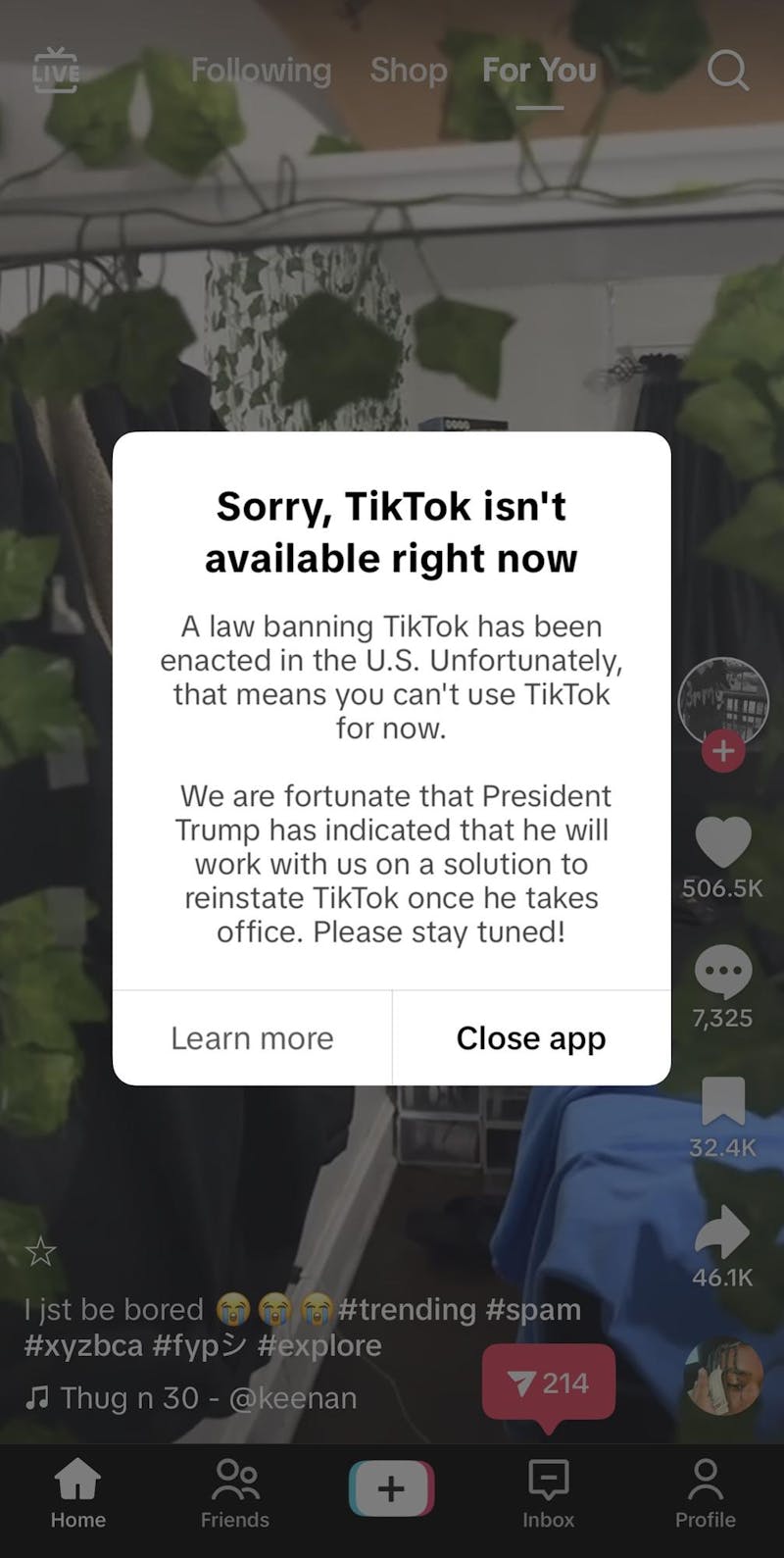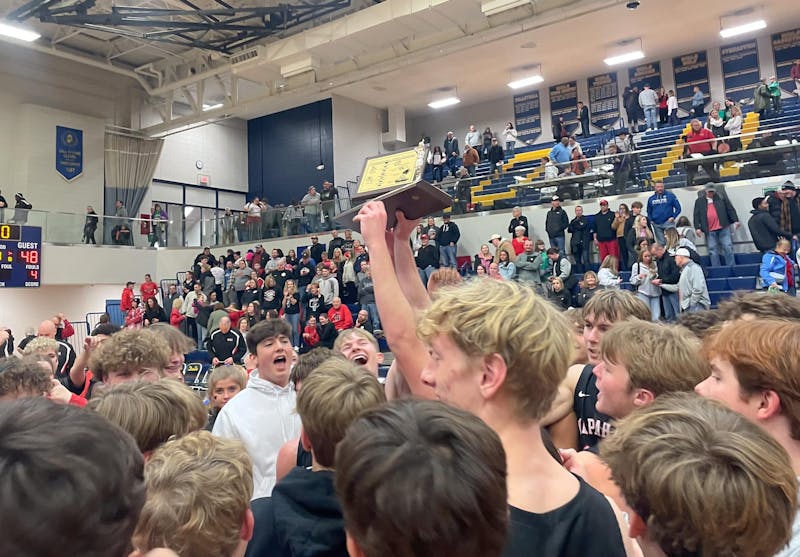Most days, Sarah Hollowell wakes up around 6:30 – 7 a.m. and immediately begins working. Some days, she finishes around 2 or 3 p.m. On others, she does a few hours of work in the morning, a few in the evening and a few late at night.
Hollowell works full-time from home as a copywriter for CopyPress, a Florida-based company that provides writing for advertisements and other forms of marketing. She also writes novels, and her first book, “A Dark and Starless Forest,” was released in September 2021.
After she received her bachelor’s degree in creative writing from Ball State in 2015, Hollowell worked various temporary positions around the university before becoming an administrative coordinator for the Department of Educational Leadership in April 2020. She worked there for about a year and a half when, around last October, her friend Brittany Means suggested she apply to CopyPress. Hollowell did and began working there a month later.
“I actually really loved it [at the Department of Education Leadership],” Hollowell said. “It was just that remote work was a lot better for me, and I had an opportunity to do full-time remote work with pretty good pay and benefits — I couldn’t really turn it down.”
Hollowell is one of the few workers in the United States who works fully remotely. Michael Hicks, Ball State professor of economics and director of the Center for Business and Economic Research, said fewer than 1 percent of jobs are fully remote, with 10-15 percent being closer to a hybrid style, in which employees are still required to come into the office on a regular basis.
It’s this small share of the total working population that Indianapolis-based company MakeMyMove wants to work with. Mike Rutz, CEO and co-founder of MakeMyMove, a company that helps relocate remote workers across the country, helped start the website in December 2020 after he saw an upward trend in the number of remote workers during the COVID-19 pandemic.
“We saw an opportunity very, very specifically with recruiting remote workers because they’re a lot easier to relocate, primarily because you don’t have to go through the whole matching process with employers,” Rutz said.
MakeMyMove’s first relocation project was for West Lafayette, Indiana, with the original goal to recruit five remote workers to move to the city. To date, MakeMyMove has recruited 21 workers with an average income of $101,000. After the success of this initiative, Muncie Mayor Dan Ridenour contacted Rutz to establish a partnership with the City of Muncie.
“We went through what some of the results were with Lafayette,” Ridenour said, “why they felt Muncie might be a good location as well — which was primarily Ball State — and the fact that it’s a large enough city that it provides pretty much everything somebody needs.”
Ridenour and Rutz initially began moving the plan forward last August. Ridenour said the city paid Rutz to recruit only about five people, though he felt the number could grow from there. According to a Dec. 8, 2021, press release from Tony Sandleben, communications director for the City of Muncie, “The city and the state are working together to fund this project” with both contributing $250,000 to the program.
Rutz said Ball State is a primary factor that could be attractive to remote workers looking to move to Muncie. To Rutz, the university means nightlife, restaurants, athletic events, a public library and a public recreation center — all things that could draw people to Muncie. Aside from Ball State, Rutz also cited Muncie’s trail systems, such as Cardinal Greenway and the downtown area.
Ridenour said a large factor that could attract workers to Muncie is its low cost of living which, according to Payscale, is 9 percent lower than the national average. Hollowell said the relative affordability of life in Muncie was part of the reason she decided to stay in the area after she graduated. However, Hicks said living costs often aren’t enough to convince people to move to cities like Muncie.
According to a 2022 Brookings Institute study that Hicks co-authored, quality of life improvements like recreation opportunities, cultural activities and services, like schools and transportation options, are some of the highest contributors to economic and population growth.
“When you judge Muncie’s likelihood of attracting footloose workers … you would have to say, ‘How does Muncie do in terms of its quality of life?’” Hicks said. “With respect to those factors, do we have schools that are in the top third in the country? Do we have blight that is bottom third of the country? Do we have health care outcomes that are top third of the country? And the answer to all those questions is, obviously, ‘No.’”
Making Muncie an attractive destination for remote workers, he said, “is a difficult business.”
“There will be individuals who will appear — there’s no doubt — but in terms of Muncie ever being a significant participant in remote work? That’s going to depend upon the ability of the city to make quality of life improvements,” Hicks said.
However, Rutz said he believes moving remote workers to Muncie is a way to solve the problems Hicks cited. According to a 2021 study from Upwork, in the next five years, an expected 40.7 million Americans will work fully remotely. Rutz said, of these 40.7 million workers, MakeMyMove can find some to move to Muncie.
“For Dr. Hicks, I understand, yes, there’s blight there, and there’s things that need to be corrected and they cost money,” Rutz said. “But guess what? Every worker that we bring generates revenue for the city, and guess what that revenue can be used for? To make improvements to the city.”
For Hollowell, the reason she stayed in Muncie ultimately comes down to its feeling of home. Unlike many of her friends from high school and college, Hollowell said she likes living in Indiana. It’s where both her and her boyfriend, Ian Holt, are from, and it’s where she enjoys time with her three cats — Carlos, Podrick and Rudy — as she writes.
“The Midwest kind of has that homey sort of feel, where you kind of just … set down roots and stay,” Hollowell said. “So maybe it just attracts people who like to just stay home.”
Contact Joey Sills with comments at joey.sills@bsu.edu or on Twitter @sillsjoey.





The Daily News welcomes thoughtful discussion on all of our stories, but please keep comments civil and on-topic. Read our full guidelines here.